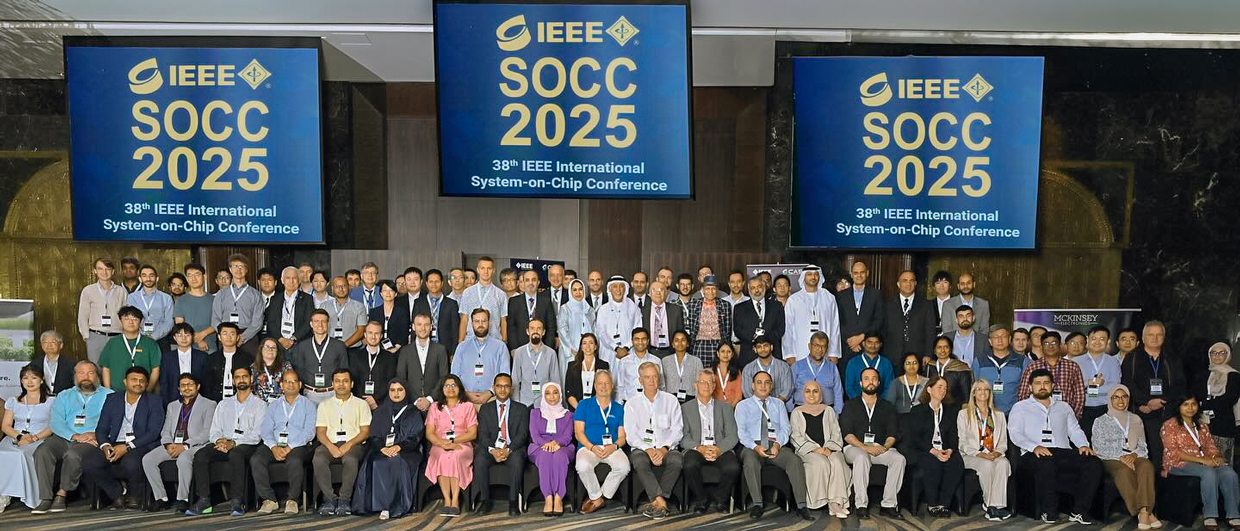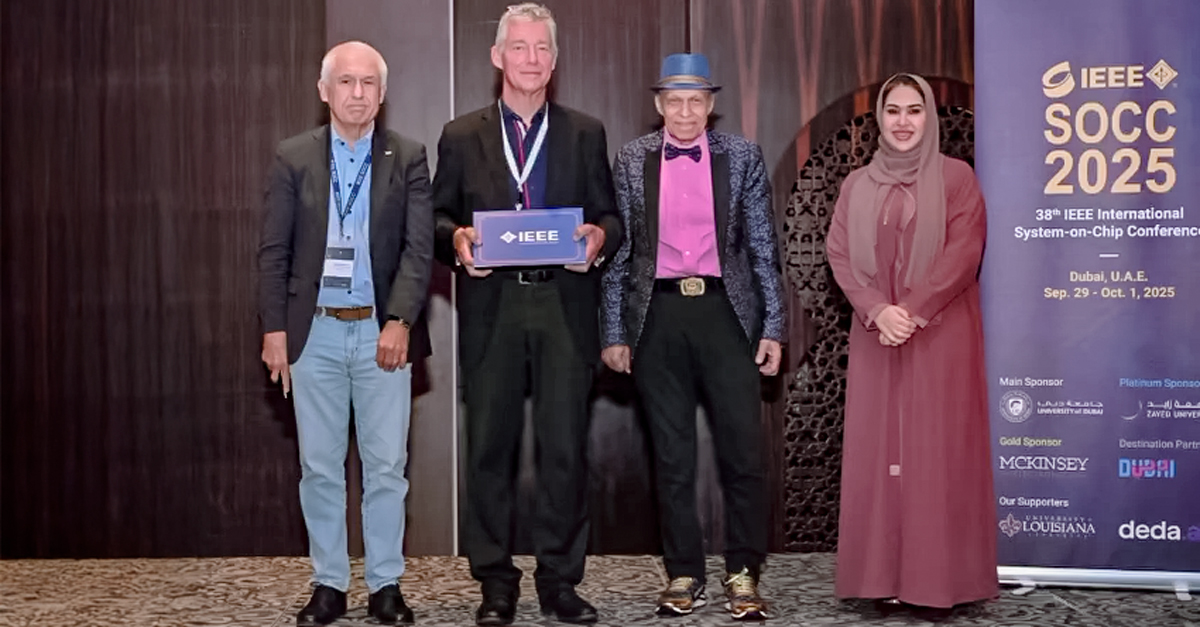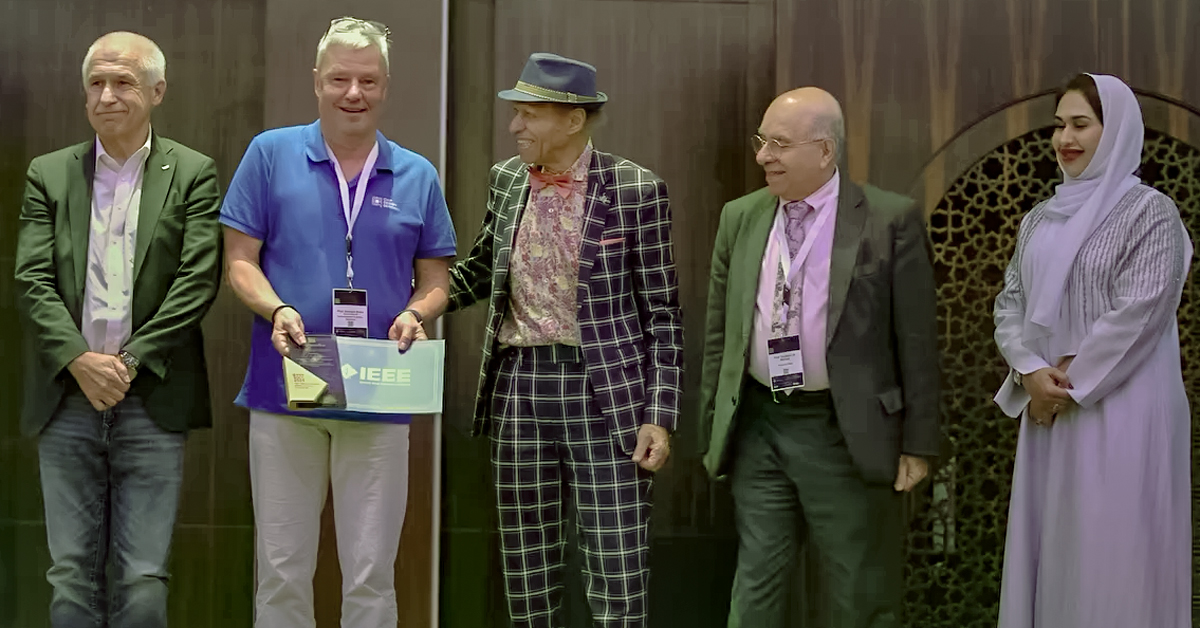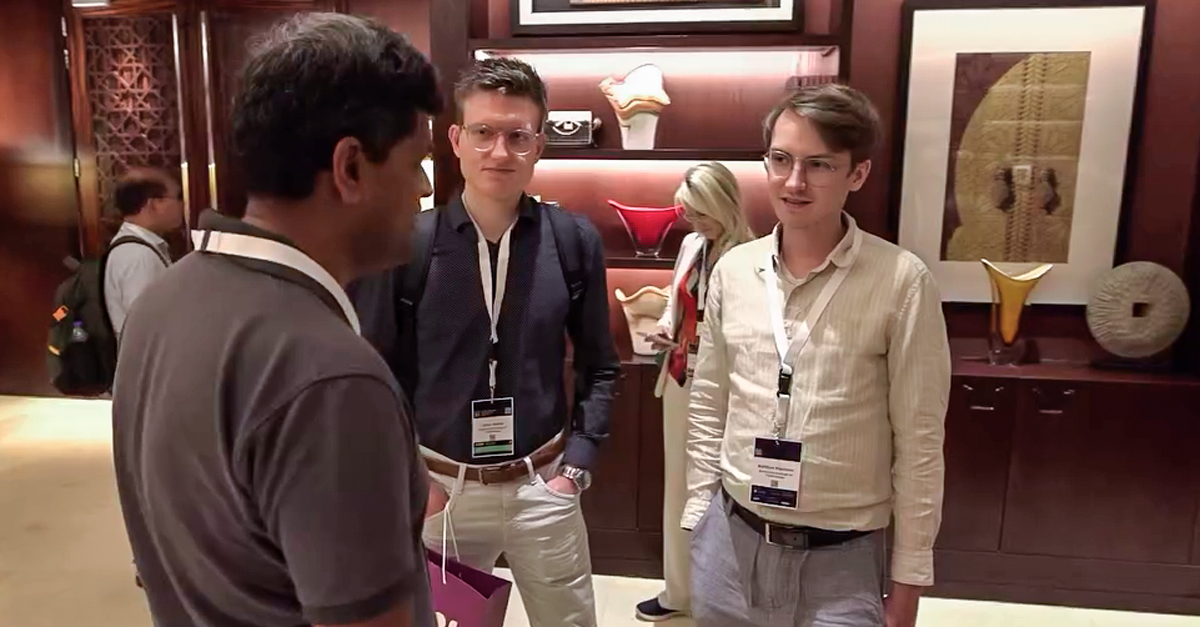The future of microelectronics: ITIV research on the international stage

The Institute of Information Processing Technology (ITIV) of the Karlsruhe Institute of Technology (KIT) was represented by Prof. Jürgen Becker, Matthias Stammler and Julian Höfer at the renowned "System-on-Chip Conference (SOCC)" in Dubai. The IEEE SOCC 2025 took place from September 29 to October 1 in the United Arab Emirates and is one of the world's leading conferences in the field of System-on-Chip (SoC) and System-in-Package (SiP).
Prof. Jürgen Becker played a central role in the conference organization as Industrial Chair. He coordinated industrial contributions, promoted the exchange between research and application and helped to organize specialist sessions.
ITIV research priorities and contributions
The ITIV team presented current research results on key topics such as automotive chips, EDA methods and chiplet platforms. The focus was on three scientific contributions:
Julian Höfer presented "BayNNgine: Hardware-Enabled Bayesian Neural Network Support for Dependable AI Inference" - an approach to improve the reliability of AI systems through hardware-assisted inference.
Matthias Stammler presented "HM2GP: a Multi-Version Task Scheduler with Extended Precedence Constraints on COTS SoCs", which enables efficient and deterministic task scheduling on standard SoCs.
Another ITIV paper dealt with a new concept for MIMO systems: "Programmable RFSoC-Based Antenna Emulator for MIMO System Prototyping".
Technical impetus for the automotive future
The ITIV team also led two specialist sessions on the topic of "Intelligent Automotive Computing", which provided space for discussions on future computing architectures and methods for networked vehicle systems.
Taking part in SOCC 2025 enabled ITIV to present its research findings to an international audience of experts and provide new impetus for the further development of microelectronics.
Impressions from the conference







